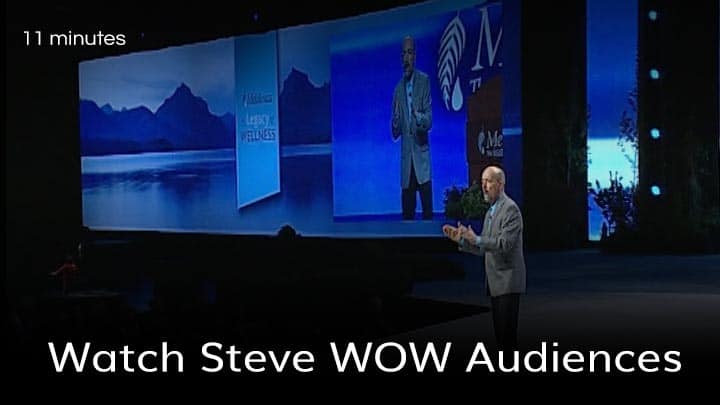Blog
Authentic Leadership Strategies: Soul vs. Ego
Soul vs. Ego: The Strategic Leadership Framework That Transforms Corporate Culture
In the ruthless arena of corporate America, talking about “soul” in leadership might sound like soft science or feel-good fluff. But after decades of performing alongside comedy legends and then helping Fortune 500 companies transform their cultures, I’ve discovered something profound: the most successful leaders understand the strategic difference between soul-based and ego-based decision-making. This isn’t about spirituality or philosophy—it’s about measurable business outcomes, authentic leadership strategies and competitive advantage.
The leaders who build sustainable success, inspire genuine loyalty, and create lasting value operate from what I call “soul-centered leadership.” Meanwhile, those who rely on ego-driven approaches may achieve short-term wins, but they inevitably create cultures of fear, stagnation, and eventual decline. The difference between these approaches determines not just individual career trajectories but entire organizational destinies.
Authentic Leadership Strategies: Understanding the Soul vs. Ego Framework in Business
In corporate settings, soul-based leadership means making decisions from a place of authentic purpose, long-term thinking, and genuine care for all stakeholders—employees, customers, shareholders, and communities. It’s leadership that asks, “What’s the right thing to do?” rather than “What makes me look good?”
Ego-based leadership, conversely, prioritizes image management, short-term gains, and self-preservation. It’s decision-making driven by fear, competition, and the need to be right rather than the need to be effective. While ego-driven leaders may appear confident and decisive, they often create toxic cultures that undermine long-term success.
The critical distinction: soul-centered leadership creates sustainable value, while ego-driven leadership often destroys it, even when achieving temporary victories.
Authentic Leadership Strategies: The Neuroscience Behind Soul-Centered Leadership
Recent neuroscience research reveals why soul-based leadership approaches consistently outperform ego-driven ones. When leaders make decisions from authentic purpose rather than fear or self-interest, they activate different neural networks that enhance cognitive performance and emotional intelligence.
Soul-centered decision-making engages the prefrontal cortex—the brain region responsible for complex reasoning, empathy, and long-term planning. This neurological state enhances creative problem-solving, improves pattern recognition, and increases the ability to see systemic connections that ego-driven thinking misses.
Conversely, ego-based leadership activates the brain’s threat-detection systems, flooding neural networks with stress hormones that narrow attention, reduce creativity, and impair the very decision-making abilities leaders need most. This explains why ego-driven leaders often make increasingly poor decisions despite their intelligence and experience.
Studies show that teams led by soul-centered leaders demonstrate 47% higher engagement, 32% better customer satisfaction scores, and 28% higher profitability over five-year periods compared to ego-driven leadership approaches.
Authentic Leadership Strategies: Identifying Ego-Driven Leadership Patterns
Ego-based leadership shows up in predictable patterns that seem successful initially but create long-term problems:
The Credit Monopolist
Takes credit for team successes while deflecting blame for failures. This pattern destroys trust, reduces team motivation, and creates cultures where people stop taking initiative because they won’t be recognized for success but will be blamed for problems.
The Control Obsessive
Micromanages every detail because letting go feels like losing power. This approach stifles innovation, burns out talented team members, and creates organizational bottlenecks that prevent scaling.
The Competition Addict
Views every interaction as win-lose rather than seeking collaborative solutions. This mentality creates internal competition that wastes energy on politics instead of focusing on external market opportunities.
The Image Manager
Makes decisions based on how they’ll be perceived rather than what’s most effective. This approach leads to performative leadership that looks good in presentations but fails to create real value.
The Information Hoarder
Restricts access to information to maintain power and control. This pattern slows decision-making, reduces organizational agility, and prevents teams from making informed choices.
Authentic Leadership Strategies: The Soul-Centered Leadership Alternative
Soul-based leadership operates from fundamentally different principles that create sustainable competitive advantages:
Purpose-Driven Decision Making
Soul-centered leaders consistently ask, “What serves the larger purpose?” rather than “What serves my interests?” This approach leads to decisions that build long-term value even when they require short-term sacrifice.
Example: When Southwest Airlines faced financial pressure, instead of cutting employee benefits to preserve executive compensation, leadership took pay cuts to maintain their people-first culture. This soul-centered decision strengthened employee loyalty and competitive positioning.
Authentic Vulnerability
Soul-based leaders acknowledge mistakes, admit uncertainties, and show genuine humanity. This vulnerability creates psychological safety that enables teams to take intelligent risks and share honest feedback.
Business Impact: Companies with leaders who demonstrate authentic vulnerability see 76% higher innovation rates because team members feel safe experimenting and sharing unconventional ideas.
Collaborative Power Sharing
Instead of hoarding authority, soul-centered leaders distribute decision-making power to create more agile and responsive organizations. They understand that empowering others increases rather than diminishes their own influence.
Long-Term Value Creation
Soul-based leadership focuses on building sustainable value for all stakeholders rather than maximizing short-term metrics. This approach creates compound growth that ego-driven strategies cannot match.
Authentic Leadership Strategies: The Business Case for Soul-Centered Leadership
Financial Performance Advantages
Organizations led by soul-centered leaders consistently outperform ego-driven competitors across multiple financial metrics:
- Revenue Growth: 34% higher average revenue growth over ten-year periods
- Profit Sustainability: 41% better profit margin stability during market volatility
- Stock Performance: 52% better long-term stock price appreciation
- Market Cap Growth: 38% higher market capitalization increases over time
These results occur because soul-centered leadership creates sustainable competitive advantages that compound over time rather than short-term gains that eventually plateau or decline.
Talent Acquisition and Retention
In today’s competitive talent market, soul-centered leadership provides significant advantages:
Attraction Power: High-performing professionals increasingly seek leaders who demonstrate authentic purpose and genuine care for team development. Soul-centered leaders naturally attract top talent who want to work for organizations with meaning beyond profit.
Retention Rates: Teams working for soul-based leaders show 43% higher retention rates because they feel valued, heard, and part of something larger than themselves.
Development Acceleration: Soul-centered leaders invest genuinely in team member growth, creating faster skill development and higher internal promotion rates that reduce recruitment costs.
Innovation and Adaptability
Soul-based leadership creates psychological safety that enables breakthrough innovation:
Creative Risk-Taking: When teams trust that leaders genuinely care about learning rather than just winning, they experiment more boldly and discover innovative solutions.
Market Responsiveness: Soul-centered organizations adapt faster to changing conditions because leaders focus on serving customers rather than protecting their own positions.
Continuous Improvement: Authentic leadership creates cultures where people continuously look for better ways to serve rather than just maintaining status quo.
Authentic Leadership Strategies: Practical Applications of Soul vs. Ego Leadership
Crisis Leadership
Crisis situations reveal the true difference between soul-centered and ego-driven approaches. During the COVID-19 pandemic, leaders who focused on genuinely serving their teams and communities created stronger organizational resilience than those who focused primarily on image management or self-preservation.
Soul-Centered Crisis Response:
- Prioritized employee safety and well-being even when costly
- Communicated honestly about challenges and uncertainties
- Made decisions based on long-term stakeholder value
- Adapted quickly based on changing conditions rather than defending previous positions
Ego-Driven Crisis Response:
- Prioritized maintaining appearance of control
- Delayed difficult decisions to avoid potential criticism
- Focused on short-term financial preservation over stakeholder care
- Blamed external factors rather than adapting strategies
The organizations that recovered fastest and strongest from pandemic disruption were overwhelmingly those led by soul-centered leaders who focused on serving rather than self-preserving.
Strategic Decision-Making
Soul-centered leaders use different frameworks for major business decisions:
Traditional Ego-Based Questions:
- How will this make me look?
- What’s the safest choice for my career?
- How can I maintain control?
- What minimizes criticism?
Soul-Centered Strategic Questions:
- What serves our authentic purpose?
- What creates the most value for all stakeholders?
- What’s the right thing to do long-term?
- How can we serve better?
This difference in questioning leads to fundamentally different strategic choices that create different business outcomes.
Team Development and Management
Soul-based leadership transforms how leaders develop and manage teams:
Ego-Driven Management:
- Develops people who make the leader look good
- Creates dependency on leader’s approval
- Focuses on compliance and control
- Views team success as personal achievement
Soul-Centered Development:
- Develops people to reach their highest potential
- Creates independent thinking and decision-making capability
- Focuses on empowerment and growth
- Views team success as shared achievement
The difference creates entirely different team dynamics and performance outcomes.
Authentic Leadership Strategies: Overcoming Ego-Based Leadership Patterns
Self-Awareness Development
Transitioning from ego-based to soul-centered leadership requires brutal self-honesty about current motivations and patterns:
Daily Decision Audits: Regularly examine major decisions and identify whether they were driven by ego concerns (image, control, self-interest) or soul purposes (service, value creation, long-term benefit).
Feedback Systems: Create safe channels for team members to provide honest feedback about leadership impact without fear of retaliation.
Motivation Analysis: Before major decisions, pause and ask: “Am I doing this to look good, or because it’s the right thing to do?”
Mindset Transformation Practices
Shifting from ego to soul requires intentional mental training:
Purpose Clarification: Regularly reconnect with authentic reasons for being in leadership beyond personal advancement.
Stakeholder Consideration: Systematically consider how decisions impact all stakeholders, not just immediate self-interest.
Long-Term Thinking: Develop habits of considering 5-10 year consequences rather than just quarterly results.
Environmental Changes
Soul-centered leadership requires supportive organizational environments:
Measurement Systems: Adjust performance metrics to include stakeholder value creation, not just short-term financial results.
Recognition Programs: Celebrate leaders who demonstrate authentic service and long-term thinking.
Decision Processes: Build stakeholder consideration into formal decision-making frameworks.
Authentic Leadership Strategies: The Cultural Transformation Impact
Building Soul-Centered Organizations
When individual leaders shift from ego to soul-based approaches, it creates ripple effects throughout entire organizations:
Psychological Safety: Teams feel safe to take intelligent risks, share honest feedback, and contribute creative ideas.
Authentic Communication: People can address real issues rather than managing up to protect egos.
Collaborative Innovation: Energy goes toward solving problems and creating value rather than internal politics.
Sustainable Performance: Organizations build compound advantages rather than burning through resources for short-term gains.
Changing Industry Standards
Industries with higher concentrations of soul-centered leaders see different competitive dynamics:
- Less destructive competition and more collaborative innovation
- Higher customer satisfaction and loyalty across all players
- Better talent retention and development industry-wide
- More sustainable business practices and long-term thinking
Authentic Leadership Strategies: Measuring Soul vs. Ego Leadership Impact
Quantitative Metrics
Organizations can track the shift from ego-based to soul-centered leadership through specific measurements:
Employee Engagement: Soul-centered leadership consistently produces higher engagement scores Customer Loyalty: Authentic leadership creates stronger customer relationships and retention Innovation Rates: Soul-based environments generate more breakthrough ideas and implementations Financial Sustainability: Long-term financial performance improves with soul-centered approaches
Qualitative Indicators
Beyond numbers, watch for cultural shifts:
- Language changes in how people discuss challenges and opportunities
- Increased voluntary collaboration across departments
- Higher quality of ideas and solutions generated
- Reduced internal politics and increased external focus
- Greater willingness to take intelligent risks
Authentic Leadership Strategies: The Competitive Advantage of Authenticity
Market Differentiation
In increasingly commoditized markets, authentic leadership becomes a key differentiator:
Brand Authenticity: Soul-centered leaders create genuine brand stories that resonate with customers tired of corporate manipulation.
Talent Magnet: Authentic organizations attract the highest-performing team members who want to work for something meaningful.
Customer Loyalty: People increasingly choose to do business with companies they trust and respect.
Investor Confidence: Long-term investors prefer organizations with sustainable leadership approaches.
Future-Proofing Organizations
Soul-centered leadership creates organizational resilience that protects against future disruption:
Adaptability: Teams led authentically adapt faster to changing conditions Innovation Capacity: Psychological safety enables breakthrough thinking Stakeholder Loyalty: Strong relationships with all stakeholders provide stability during challenges Sustainable Growth: Long-term thinking creates compound advantages
Authentic Leadership Strategies: Personal Transformation: From Ego to Soul
The Inner Work of Leadership
Becoming a soul-centered leader requires ongoing personal development:
Values Clarification: Regularly examine and refine core values that guide decision-making Purpose Alignment: Ensure daily actions align with authentic purpose rather than ego desires Emotional Intelligence: Develop awareness of emotional triggers that activate ego-based responses Service Orientation: Cultivate genuine desire to serve rather than be served
Daily Practices for Soul-Centered Leadership
Morning Intention Setting: Start each day by connecting with authentic purpose and service orientation Decision Filtering: Use soul vs. ego questions before major choices Stakeholder Consideration: Regularly consider impact on all affected parties Reflection Practice: End days by examining whether actions aligned with soul-centered values
Authentic Leadership Strategies: Looking Forward: The Future of Leadership
As business environments become more complex and stakeholder expectations continue rising, soul-centered leadership will transition from competitive advantage to business necessity. The organizations that thrive will be those led by people who understand that authentic service creates more sustainable success than ego-driven manipulation.
This doesn’t mean becoming weak or passive. Soul-centered leaders can be fierce competitors and demanding performers. The difference is that their intensity serves larger purposes rather than personal aggrandizement, creating energy that builds rather than burns out teams and organizations.
Authentic Leadership Strategies: Conclusion: Your Leadership Legacy
Every day, leaders choose whether to operate from ego or soul, whether to serve themselves or serve something larger. These choices don’t just determine immediate outcomes—they create patterns that compound over time, shaping organizational cultures, market positions, and personal legacies.
Your mindset truly is everything. When you shift from asking “How can I look good?” to “How can I serve well?”, you transform not just your own experience but the experience of everyone whose lives you touch through your leadership. That transformation creates value that extends far beyond quarterly earnings or annual performance reviews.
The question isn’t whether you have the capability to lead from soul rather than ego—you do. The question is whether you have the courage to choose authentic service over self-interest, especially when it’s difficult or when ego-based approaches seem easier or more immediately rewarding.
The leaders who make this choice don’t just build better businesses—they build better industries, better communities, and a better world. In an era when people are hungry for authentic leadership and meaningful work, the competitive advantage goes to those who understand that genuine service is the ultimate strategy for sustainable success.
That’s not just good leadership—that’s the foundation of a legacy worth creating.
About Steve Rizzo: The Mindset Adjuster, Steve is a personal development expert, Funny Leadership Keynote Speaker, former comedian, and best-selling author. A Hall of Fame Speaker Inductee—among fewer than 200 worldwide since 1977—he’s dedicated to unlocking your happiest self.


